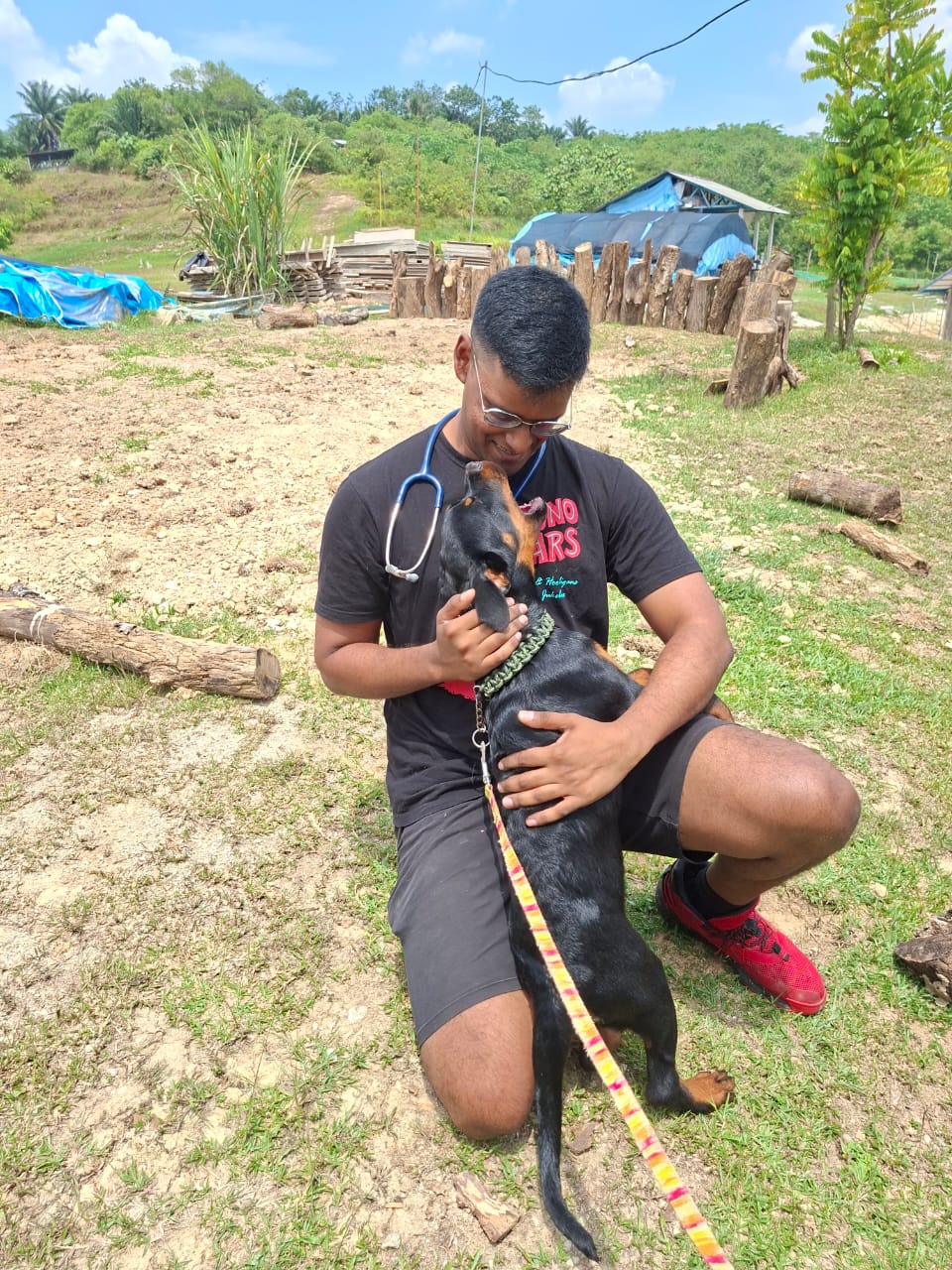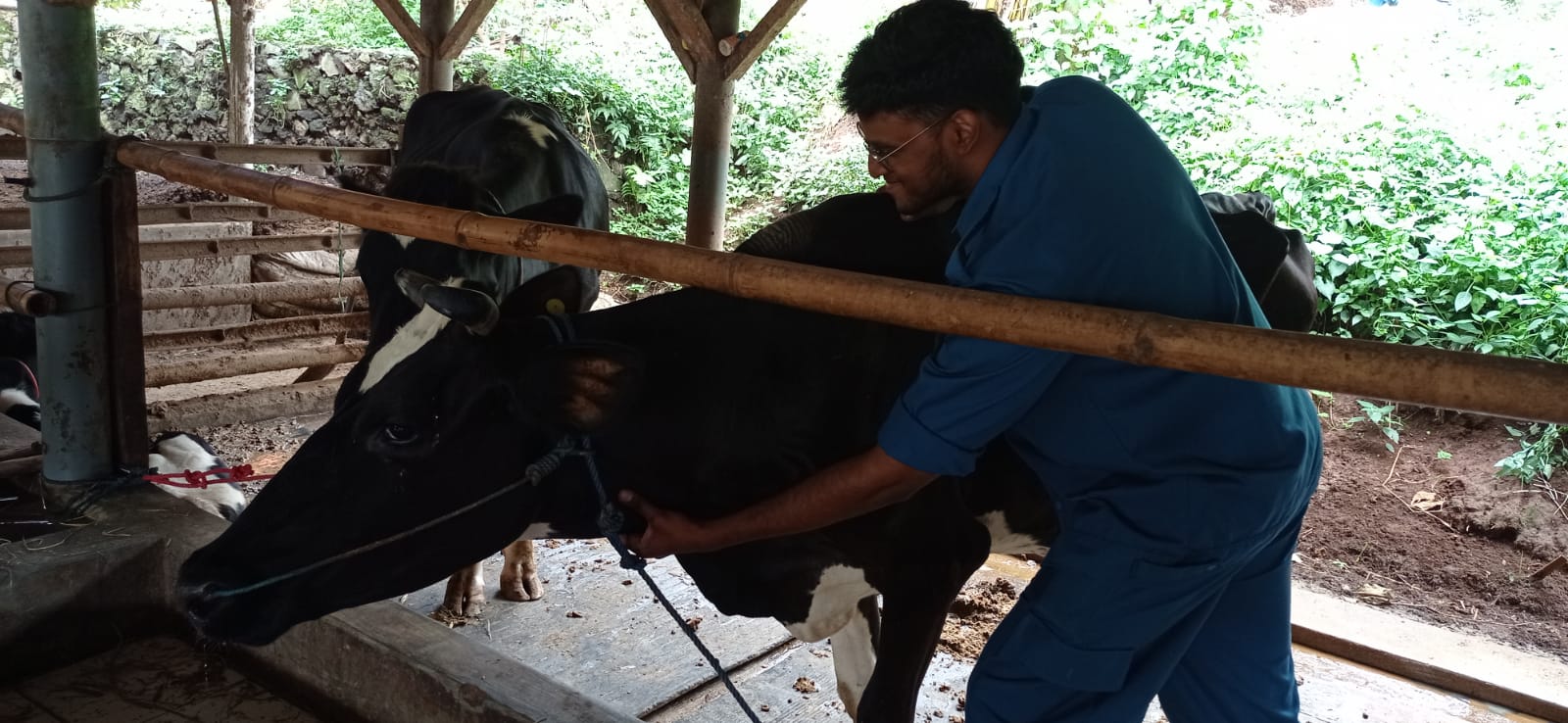Inside the Vet World Part II: Dr Jason’s Journey from Passion to Practice

Munirah Ahmad Niza
October 16, 2025
“It’s not about being a genius — it’s about hard work, heart, and consistency.” Dr Jason’s journey shows what it truly means to turn passion into purpose, one paw at a time.
- Vet school is long and demanding. Success comes from discipline and consistency, not just intelligence.
- Memorable moments, like reconnecting with recovered pets, remind him why he chose this path.
- Managing emotions with empathy is key when supporting pet owners through tough news.
From his student days at IPB University, Indonesia, to his current role at an animal hospital in Selangor, Dr Jason Jeremiah has seen firsthand what it takes to turn a love for animals into a meaningful career.

Five years of hard work, heart, and hands-on learning later, he’s now living his dream of helping animals every single day.
🐱Haven’t caught part 1 yet? Head over here and give it a read first!
1. First of all, what inspired you to choose veterinary medicine as your field of study?
For me personally, I guess I always liked animals. And naturally, when you like animals, people tend to suggest veterinary medicine. So from a young age, I already had the idea that this was what I wanted to do.
2. How was your journey in vet school, and what were the biggest lessons you learned?
Vet school is a long journey. Mine took about five and a half years in Indonesia. Honestly, it’s not about being a genius; it’s about hard work. There’s a lot of studying, writing reports, and just pushing through. If you’re disciplined and consistent, you’ll get through it.
The first couple of years are heavy on theory. There are lots of reading and understanding the foundations. The hands-on part really comes in later, where you start applying what you’ve learned. Both are equally important, and together they prepare you to handle real cases with confidence.

3. What are some misconceptions people often have about your job?
I think there’s sometimes a negative stigma that vets are only in it for the money. From my experience, that’s far from the truth. A big part of the cost actually goes into medication, equipment, and simply keeping the clinic running.
Unlike human hospitals that receive government support, most veterinary clinics are private practices. So the fees we charge aren’t about profit; they’re about making the work sustainable while still providing the level of care pets deserve.
4. What is a typical day in your clinic like, and what are the most common cases you handle?
A typical day usually starts with ward rounds. We check on the animals, give treatments and make sure they’re stable. After that, we move on to procedures, and later in the day, we handle consultations.
As one of the more junior doctors, I spend much of my time managing the wards, while senior vets handle consultations and surgeries. It’s fast-paced, but every case teaches you something new.
5. Can you share a touching or memorable story that reminded you why you became a vet?
I remember treating a Cocker Spaniel named Chino. While he was in the hospital, he refused to eat, so I started bringing him some boiled chicken, and that finally got him eating again. He recovered well and went home, but what really touched me was a few months later, when he came back for a check-up.
The moment he saw me across the hospital, he started whining and wagging before I even reached him. Moments like that remind me exactly why I became a vet.
6. How do you manage the emotional side of working with both animals and their owners?
Pet owners are often deeply attached to their animals. For many, they’re like family or even like children. That makes it especially hard when we have to share bad news.
As a vet, the most important thing is to stay calm. Even if the owner is upset, you have to keep a steady temperament, reassure them and guide them through the situation. It’s not always easy, but being that calm presence helps both the pet and the owner.
7. In your view, how is the pet care industry in Malaysia evolving, and what opportunities does that create for future vets?
The pet care industry in Malaysia is definitely growing, and so is the demand for vets. If it’s something you’re passionate about, it can absolutely be a viable career. Right now, there’s still a shortage, and a lot of employers are actively looking for vets, so the opportunities are definitely there.
Dr Jason’s story reminds us that veterinary medicine is not just a science, but a calling built on compassion, patience and the quiet joy of helping those who can’t speak for themselves.



